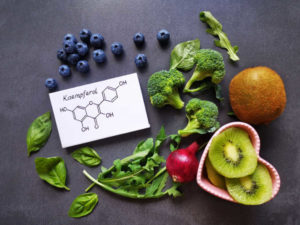If you’re getting older and your diet is terrible, it’s time to consider cleaning it up. Diets rich in flavanols may be able to help slow cognitive decline. On his blog, Mercola.com, Dr. Joseph Mercola explains the evidence surrounding flavanols, writing:
Recent research has again highlighted the importance of eating a wholesome whole foods diet. Fruits and vegetables are rich in flavonoids, bioactive compounds that have anti-inflammatory, antioxidant and cytoprotective properties,1 known to benefit both body and brain.
Flavonol-Rich Foods Slow Cognitive Decline
In this particular study,2 they analyzed the diets of 961 participants between the ages of 60 and 100, who were followed for an average of 6.9 years as part of the Rush Memory and Aging Project, to determine how diet affected cognitive ability in old age.
None had signs of dementia at the onset of the study. Diet was reported using a semi-quantitative food frequency questionnaire, and cognitive performance was assessed annually through 19 standardized tests. As reported by the authors:3
“Higher dietary intake of total flavonols and flavonol constituents were associated with a slower rate of decline in global cognition and multiple cognitive domains.
In continuous models adjusted for age, sex, education, APOE-ɛ4, late life cognitive activity, physical activity, and smoking, total flavonol intake was associated with slower decline in global cognition β estimate=0.004, episodic memory β=0.004, semantic memory β=0.003, perceptual speed β=0.003, and working memory β=0.003 …
Analyses of individual flavonol constituents demonstrated that intakes of kaempferol and quercetin were associated with slower global cognitive decline [β=0.01 and β=0.004], respectively …
Results suggest dietary intakes of total flavonols and several flavonol constituents may be associated with slower decline in global cognition and multiple cognitive abilities with older age.”
Participants with the highest daily flavonol intake got about 15 milligrams a day, equal to approximately 1 cup of dark leafy greens, whereas those with the lowest intake only got about 5 mg a day.
For reference, the average daily flavonol intake for American adults is estimated to be between 16 and 20 mg,4 so this study also shows that many elderly aren’t getting enough fruits and vegetables.
Read more here.
If you’re willing to fight for Main Street America, click here to sign up for my free weekly email.





